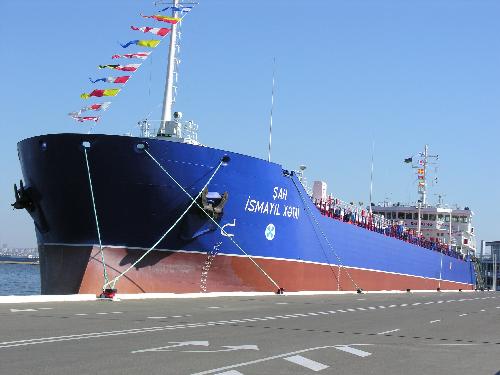
November 2012
The “SafeMed Project on maritime safety and prevention of pollution from ships”, a regional project funded by the EU, is now in its second phase of operation, known as SafeMed II.
The goal of the project is to develop cooperation and coordination in the areas of maritime safety and security in the Mediterranean ocean. The first phase of the project operated from 2006-2009, and the second phase from 2009-2011.
SafeMed is run by the Regional Marine Pollution Emergency Response Centre for the Mediterranean Sea (REMPEC), in conjunction with the International Maritime Organization (IMO).
The Mediterranean is a unique security challenge due to its large size, huge volume of trade on its waters, and the many and varying nations that are located on its shores. Much of the motivation for SafeMed was to standardize the port procedures and general maritime security, so all countries that have a stake in the region are on the same page.
Currently, the 5.8 million Euro SafeMedII project provides 15 states with help in improving their port security, maritime safety and environmental protection. The states receiving funds are Albania, Algeria, Bosnia & Herzegovina, Croatia, Egypt, Israel, Jordan, Lebanon, Libya, Montenegro, Morocco, the Palestinian Authority, Syria , Tunisia, and Turkey.
Aside from providing direct help, SafeMed II looks to be a platform from which important issues can be discussed.
Because the Mediterranean Sea does not have any wide outlets into the world’s major oceans, pollution is always a concern. This problem is exacerbated by the fact that 10% of the world’s shipping occurs on this body of water. It is a primary way goods and natural resources reach Europe from Africa and Asia.
One of SafeMed’s goals is to reduce the possibility for damaging pollution, and it has done so by establishing MedRules, which is a set of standards designed to help officials determine which international environmental standards and regulations are applicable to specific ships.
SafeMed also takes a close look at each individual country’s coastal situation. SafeMed conducts field missions where it does an environmental examination of each country’s coastal areas and makes actionable recommendations to that government. Thanks to such efforts, Algeria has taken tangible action to formalize their safety and environmental rules for ships. Egypt, Morocco and Tunisia have also taken steps to prevent air pollution from ships.
SafeMed also takes the lead in offering training for a wide array of maritime officials. The organization provides Vessel Traffic System training, so port officers and supervisors can hone their qualifications to manage port traffic. This insures that all ports are operated by officials the possess standardized international training, which makes safety a much more achievable possibility.
SafeMed doesn’t just provide vocational training– the project also grants scholarships to officials from North African States to attend the IMO International Maritime Law Institute and the World Maritime University. These programs send back the officials to their home countries as valuable and well-trained maritime lawyers and experts in the fild.
SafeMed is going a long way in making the Mediterranean a better body of water. This vital center of global trade is only as good as those that operate on its waters. By bringing countries that are lagging behind into the fold, the world will benefit from a cohesive and safe Mediterranean.